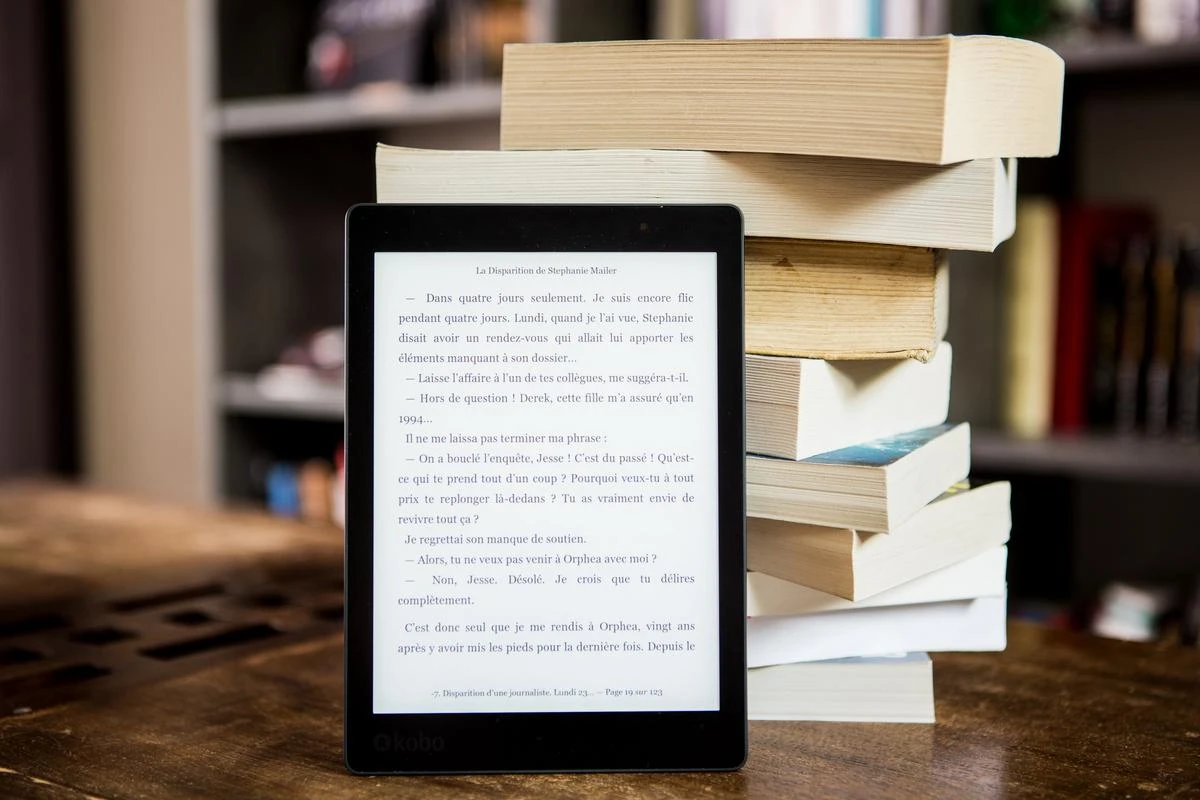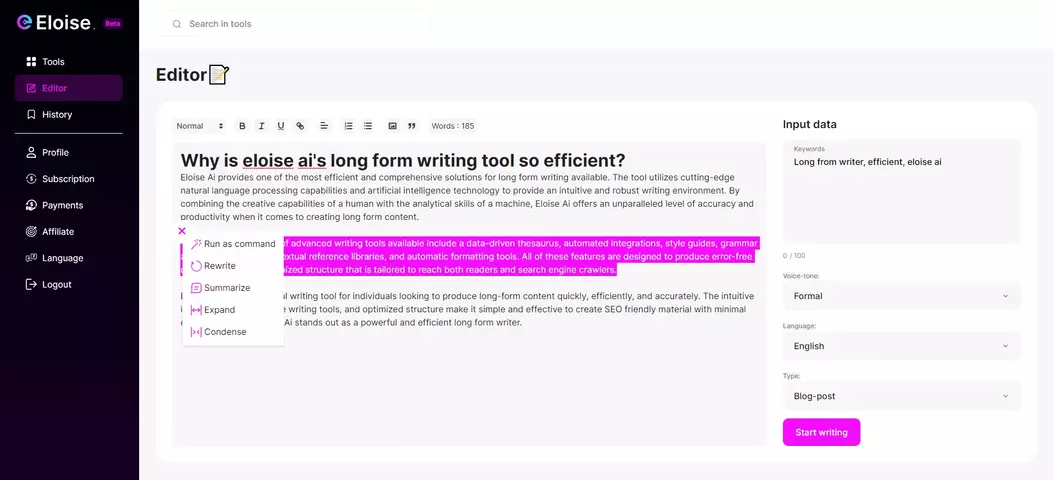Table of contents
Introduction
The influence of artificial intelligence (AI) is penetrating various sectors, creating a wave of transformation across industries. Among them, the literary sphere has shown particular promise. While using AI as a tool for authors may seem like a daunting concept, the rapid evolution of technology is making it increasingly possible. The emergence of sophisticated AI writing tools has sparked intrigue in the possibility of an AI Book Writer, hinting at a fascinating future where creativity meets computational power.
A New Era in Writing: The AI Book Writer
The very notion of AI authoring a book might have seemed abstract and futuristic just a few years ago. Yet, the advancements in machine learning, natural language processing (NLP), and AI technologies have made it a tangible reality. These breakthroughs have led to the emergence of powerful AI writing tools that can not only assist but potentially automate the writing process. The AI Book Writer represents a paradigm shift, enabling an innovative approach to content creation.

The Advent of AI Writing
AI's integration into the writing field has introduced an array of innovative tools capable of generating content at an impressive pace. Understanding the output of these tools and refining it to suit human readership requires a nuanced approach. AI writing tools represent the cutting edge of technology in the writing domain, poised to redefine the way we create and consume literature.
Emerging AI Writing Tools
From AI tools for drafting articles to AI platforms for writing scripts, the market has seen a surge in AI-enabled writing aids. They embody the immense potential of AI across diverse writing styles. Each tool brings unique offerings to the table, demonstrating that the realm of AI writing extends far beyond just automating mundane tasks.
How Does an AI Book Writer Work?
At the core of an AI Book Writer are sophisticated algorithms capable of learning from a vast corpus of existing text, analyzing it, and then generating fresh content. This innovative technology can emulate the style of specific authors, craft engaging narratives, and even create captivating characters, imbuing a fresh wave of creativity into the writing process.

The Mechanics of an AI Book Writer
AI writing tools leverage machine learning algorithms trained on vast text databases. These algorithms operate by predicting the next sequence of words in a given context. This method allows for the generation of original content that remains coherent and engaging, successfully mimicking the narrative flow of human-written text.
AI and Creativity: A New Paradigm
When we think of AI, we often associate it with logical and analytical tasks. However, the marriage of AI and creativity has borne fascinating results. From crafting poetry to authoring novels, AI is proving that creativity is not just the exclusive domain of humans. This revelation ushers in a new paradigm where technology and art intertwine in previously unimagined ways.
Benefits and Challenges of Using AI for Writing Books
Integrating AI into the writing process holds an abundance of potential benefits but also presents significant challenges. It can revolutionize productivity, enhance creativity, and offer novel perspectives. However, the advent of AI writing also raises pertinent questions about originality, authenticity, and the potential for misuse. This complex landscape of potential and pitfalls marks the current state of AI in literature.

Pros of AI Book Writing
AI writing tools can offer numerous advantages to writers. They can help overcome writer's block by providing fresh perspectives, accelerate the writing process, and generate multiple drafts in the time it takes a human writer to produce one. Moreover, these tools offer unique angles to a story, infusing an element of unpredictability and freshness into the narrative.
Cons of AI Book Writing
Despite the advantages, several concerns surround AI-written books. Quality control issues often surface as AI, despite its sophistication, might not fully grasp the subtleties of human emotion and experience. Furthermore, debates about authorship and copyright arise when books are written by AI. The challenge of authenticity also persists, as AI-generated writing may lack the unique personal touch and lived experience of a human author.
Final Thoughts: Can AI Write a Book?
Although the integration of AI into book writing is still in its infancy, the potential is immense. As advancements in AI continue, the day might not be far when AI writing tools become a staple in every writer's toolkit. Yet, the story of AI and literature is still being written, with many more exciting chapters on the horizon. It's a field marked by potential and uncertainty, an adventure into the unknown that writers, readers, and technologists embark on together.

The Road Ahead for AI in Literature
As AI continues to evolve and mature, it stands ready to reshape the literary landscape in unforeseen ways. This shift may bring about changes we cannot fully anticipate today, making the future of AI and literature a thrilling prospect. Whether it's through augmenting human creativity or creating entirely AI-authored works, the impact of AI on literature promises to be profound.
Collaboration between AI and Authors
In the grand narrative of AI and literature, the future may not involve AI replacing authors. Instead, it might be about AI collaborating with authors, acting as a catalyst to their creativity. By blending AI's computational prowess with human imagination and emotional depth, we could be on the brink of an exciting literary renaissance.


